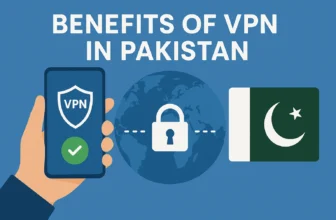Why computer security is important in Pakistan (2025) is easy to see: more banking, shopping, and work are online now, so scams, viruses, and ransomware are rising. BreTech helps you stay safe with genuine security software licenses, fast email delivery, and local guidance.
Start with simple steps: keep your antivirus updated, use strong passwords with 2FA, turn on your firewall, and use a trusted VPN on public Wi-Fi. BreTech provides vetted tools so your data stays protected from theft and unwanted access.
Key Takeaways
- Understanding and implementing cybersecurity is crucial in today’s digital age.
- BreTech is a trusted partner in providing cybersecurity solutions in Pakistan.
- Effective security measures can protect against cyber threats and data breaches.
- Robust cybersecurity is essential for safeguarding digital assets and systems.
- BreTech offers the necessary tools and knowledge to enhance cybersecurity in Pakistan.
Explore: Security Software · Antivirus & Malware
The Evolving Cyber Security Landscape in Pakistan (2025)

Pakistan’s transition to online banking, e-commerce, and remote work expands the attack surface. The main issues reported are social engineering (phishing), malware/ransomware, and weak account security. Maintaining good hygiene through updates, backups, and cautious handling of links/emails minimizes daily risks.
Current Cyber Threats Targeting Pakistani Users
Pakistani users face many cyber threats. These include phishing attacks, ransomware, and data breaches. These threats are getting more advanced, so it’s crucial for everyone to be careful.
Common cyber threats include:
- Phishing attacks that trick users into revealing sensitive information
- Ransomware that encrypts files and demands payment in exchange for the decryption key
- Data breaches that compromise sensitive information
| Cyber Threat | Description | Impact |
|---|---|---|
| Phishing | Attacks that trick users into revealing sensitive information | Financial loss, identity theft |
| Ransomware | Malware that encrypts files and demands payment | Data loss, financial loss |
| Data Breaches | Unauthorized access to sensitive information | Financial loss, reputational damage |
What Recent Cases Show
Across 2023–2025, public advisories and news in Pakistan repeatedly highlight the same patterns: phishing scams against individuals and staff, ransomware impacting operations, and leaks caused by weak credentials. The exact details vary by case, but the lesson is consistent—basic controls stop many incidents early.
For current alerts and official reporting, see: NR3C (Cyber Crime Wing) and Pakistan CERT.
These incidents show the need for strong cybersecurity measures. They help protect against the growing threat landscape.
Why Computer Security Is Important in the Pakistani Context

Computer security in Pakistan is key for many reasons. It protects personal data, helps national development, and boosts the economy. As digital tech grows, strong cybersecurity is more vital than ever.
Protecting Personal and Financial Information
In today’s world, keeping personal and financial info safe is a must. Cyber threats can cause identity theft and financial fraud. These can harm both people and businesses a lot.
Using strong, unique passwords and two-factor authentication helps a lot. Being careful with online data and watching financial activities can also help spot security issues early.
Securing Digital Infrastructure for National Development
Computer security is crucial for Pakistan’s digital setup. A safe digital space builds trust in online deals, boosts e-commerce, and grows digital services. This helps the economy and improves life for people.
The government and private sector must work together. They should do regular security checks, plan for incidents, and use the latest security tech. This way, Pakistan can keep its digital services running and protect its key infrastructure from cyber threats.
Economic Impact of Cybersecurity Breaches on Pakistani Businesses
Cyber attacks can hurt Pakistani businesses a lot. They can cause financial losses, damage reputation, and lose customer trust. The cost of fixing a cyber attack can be very high, including response, legal, and fines.
To avoid these problems, Pakistani businesses need to focus on computer security. They should invest in good cybersecurity and train their employees. By being proactive, businesses can lower the chance of a breach and its economic effects.
Practical Computer Security Measures for Pakistanis

Pakistanis can lower their risk of cybercrime by using practical security measures. We will cover essential tools, safety tips, and local resources for users.
Essential Security Tools for Pakistani Users
- Antivirus & Anti-malware: Real-time protection and web shields for everyday threats.
- Network & VPN Security: Encrypt traffic on public Wi-Fi and reduce tracking.
- Privacy & Password: Use unique passwords and a manager; enable 2FA where available.
- Security Suites: One package with firewall, anti-phishing, and device controls.
Digital Safety Best Practices
Following best practices is crucial for digital safety. Pakistani users should:
- Use strong, unique passwords for all accounts. Also, turn on two-factor authentication when you can.
- Be careful with emails and links from unknown sources to avoid phishing scams.
- Keep your operating system, browser, and software up to date. This fixes security holes.
Local Resources and Support for Cybersecurity
For more help, there are local resources available:
| Resource | Description | Contact Information |
|---|---|---|
| National Response Center for Cyber Crime (NR3C) | A government agency dealing with cybercrime | https://nr3c.gov.pk/ |
| Pakistan Computer Emergency Response Team (CERT) | Provides cybersecurity alerts and advisories | https://cert.gov.pk/ |
| Local Cybersecurity Forums | Community-driven forums for discussing cybersecurity issues | Varies |
By using these resources and following the security tips, Pakistani users can boost their digital safety.
Conclusion: Why Computer Security Is Important in Pakistan
Cyber threats are growing, but basic steps make a big difference: updated software, strong passwords with 2FA, cautious clicks, and protected connections on public Wi-Fi. For added safety, use reputable security tools.
BreTech is a trusted software reseller in Pakistan. We provide genuine licenses for antivirus, VPN, privacy, and security suites with fast digital email delivery and local guidance.
Shop Security Software in Pakistan: genuine licenses, fast email delivery, and local guidance from BreTech.
Further Reading
Want to learn more about business security in Pakistan? Check out these helpful posts:
- Why Cybersecurity Is Important in Pakistan
- Best Cybersecurity Tools in Pakistan
- Genuine Software for SMEs in Pakistan
- Best Business Security Software for SMEs in Pakistan
- Remote Work Cybersecurity in Pakistan
FAQs
Q: What are the common security threats that individuals face?
Common security threats like malware, phishing attacks, ransomware, and data breaches can compromise personal information and sensitive data, resulting in financial and reputational damage. Understanding these threats is crucial for effective security practices.
Q: Why is security work critical for organizations?
Security work is essential for organizations as it protects vital information systems from cyber threats. Investing in security management and regular audits helps identify vulnerabilities and enhances security posture, ensuring data and system safety.
Q: How do computer security threats affect personal information?
A: Computer security threats can lead to unauthorized access to personal information, resulting in identity theft and financial loss. Protecting personal information through robust security measures and security policies is essential to mitigate these risks.
Q: What role does information security play in safeguarding sensitive data?
Information security is crucial for protecting sensitive data through layers like encryption, access controls, and security protocols, ensuring confidentiality and guarding against unauthorized access.
Q: How can businesses prioritize data security?
Businesses can enhance data security by implementing a comprehensive program that includes security solutions, regular employee training, and effective practices, thereby mitigating risks and improving security management.
Q: What are the latest security trends in cybersecurity?
A: Latest security trends in cybersecurity include the increased use of artificial intelligence for threat detection, the adoption of zero-trust security models, and the growing importance of cloud security. Staying updated on these trends helps organizations adapt their security strategies accordingly.
Q: How does a cybersecurity expert contribute to overall security?
A cybersecurity expert enhances security by assessing vulnerabilities, implementing security architecture, and developing tailored security policies, ensuring effectiveness against evolving cyber threats.
Q: What are the implications of not addressing security vulnerabilities?
Neglecting security vulnerabilities can result in data breaches, loss of customer trust, and legal issues. Organizations must prioritize security controls and perform regular audits to quickly identify and fix vulnerabilities.
Q: What security features should be included in a robust security program?
A: A robust security program should include features such as endpoint security, network security, application security, and physical security. Combining these elements creates a multi-layered approach that effectively protects against various security threats.







